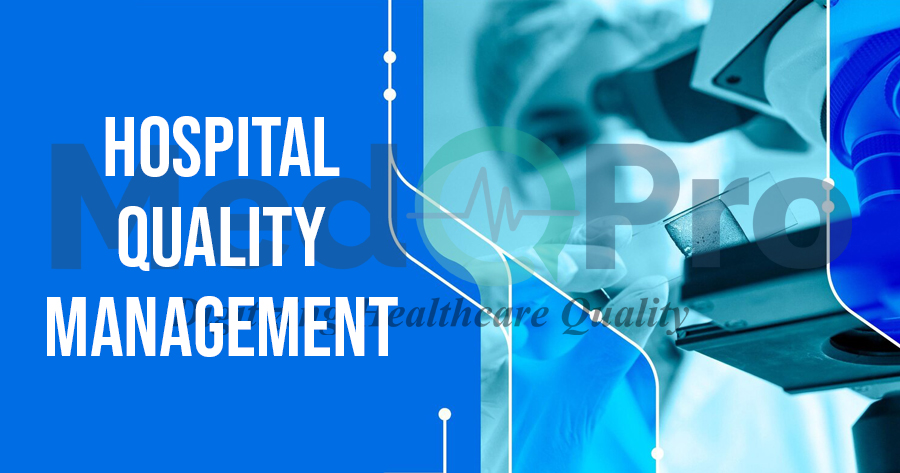Preserving quality and efficiency must first take the front stage in the fast-paced healthcare scene of today. Emerging as a key tool for healthcare facilities striving to enhance their offerings, ensure patient safety, and follow regulatory guidelines is the Hospital Quality Management Software (QMS). Designed to streamline operations and foster continuous improvement, Hospital Quality Management Software acts as a comprehensive solution for managing everything from compliance tracking to incident reporting. This blog explores the benefits, tools, and value of QMS software for hospitals.
Describes Hospital Quality Management Software
Designed especially to help healthcare facilities in the effective running of their quality control systems, Hospital QMS is a complete solution. Incorporating a range of quality enhancement projects, this program presents a methodical approach to the delivery of excellent patient care. It covers risk assessment and policy management, therefore enabling hospitals to track performance, pinpoint areas needing improvement, and stimulate constructive change.
Key Features of Hospital Quality Management Systems
When evaluating Quality Management Software for hospitals, some characteristics are necessary to guarantee that the program fits the special requirements of healthcare facilities:
- Document Administration
QMS software for hospitals mostly serves to enable the systematic management of documentation. This covers the preservation of accreditation records, standard operating policies (SOPs), and patient care practices. Good document management systems help hospitals to quickly save, access, and update records, therefore ensuring compliance with health laws.
- Incident Notes
By means of strong incident reporting tools, quality management software provides hospitals with means to record and evaluate adverse occurrences or near misses. In the end, this ability is crucial for the formulation of plans to stop next events and the understanding of the fundamental reasons of occurrences, so enhancing patient safety.
- Management of Audits
Maintaining the best quality of treatment and ensuring compliance depend on regular audits, which are essential. By use of tools for planning, implementation, and monitoring of audit results, Hospital Quality Management Software streamlines the audit process. This promotes a culture of ongoing development and helps to follow up corrective actions effectively.
- Fourth Performance Evaluation
Hospitals must track important performance indicators (KPIs) if they are to improve. By use of QMS software for hospitals, healthcare practitioners may measure and evaluate these indicators, therefore helping them to spot patterns and areas where quality enhancement is possible.
- Training Management
Maintaining the quality of care depends on ensuring that medical staff members are sufficiently qualified. Appropriate Hospital QMS can help to manage certifications, compliance records, and training programs, thereby ensuring that hospitals retain workers ready to deliver the best possible quality of treatment.
Benefits of using hospital quality management systems
The several advantages of investing in Hospital Quality Management Software can significantly affect the operational efficiency and patient care.
Improved Consumer Safety
Through the use of incident reporting and risk management tools, QMS systems for hospitals help to improve patient safety by allowing healthcare institutions to properly detect and reduce hazards. This proactive strategy helps to create a patient’s safe surroundings.
Enhanced Compliance for Regulations
Healthcare rules are always changing; hence one must comply with them. By using Quality Management Software for hospitals, organizations can more successfully satisfy licensing and certification criteria, so enabling them to keep current with the most recent laws.
Improved Focus
Automation and improvement of several quality control procedures helps to increase operational efficiency. Reducing manual labour and mistakes can help hospitals allocate more time for patient care, therefore enhancing the general quality of service.
Enhanced Choice of Decision-Making
Using real-time data and analytics, hospital managers can make well-informed decisions grounded on specific facts. Healthcare companies foster a data-driven culture by means of the ability to examine performance criteria and quality indicators.
Final Thoughts
As healthcare develops, the need for efficient quality control systems is growingly critical. By ensuring that hospitals provide the best possible quality of patient treatment, hospital QMS software may transform the way they run. Using best hospital quality management software from MedQPro, can help healthcare facilities drive operational excellence, increase patient safety, and improve compliance, therefore improving the health outcomes for the people they treat. Not only is it a choice to commit to the ongoing improvement and quality of healthcare delivery, but also in QMS software for hospitals. Take advantage of hospital quality management software for your healthcare business in India to improve operational efficiency and ensure compliance with healthcare standards.


